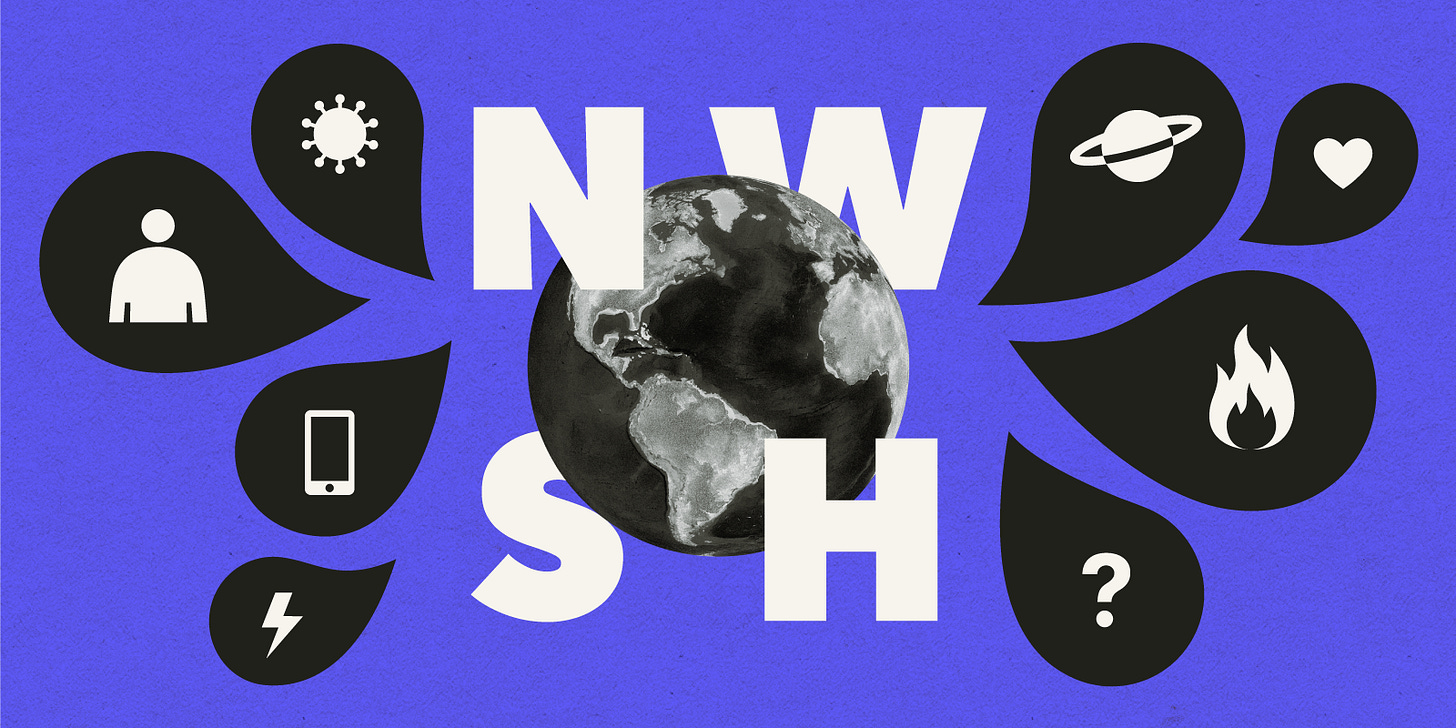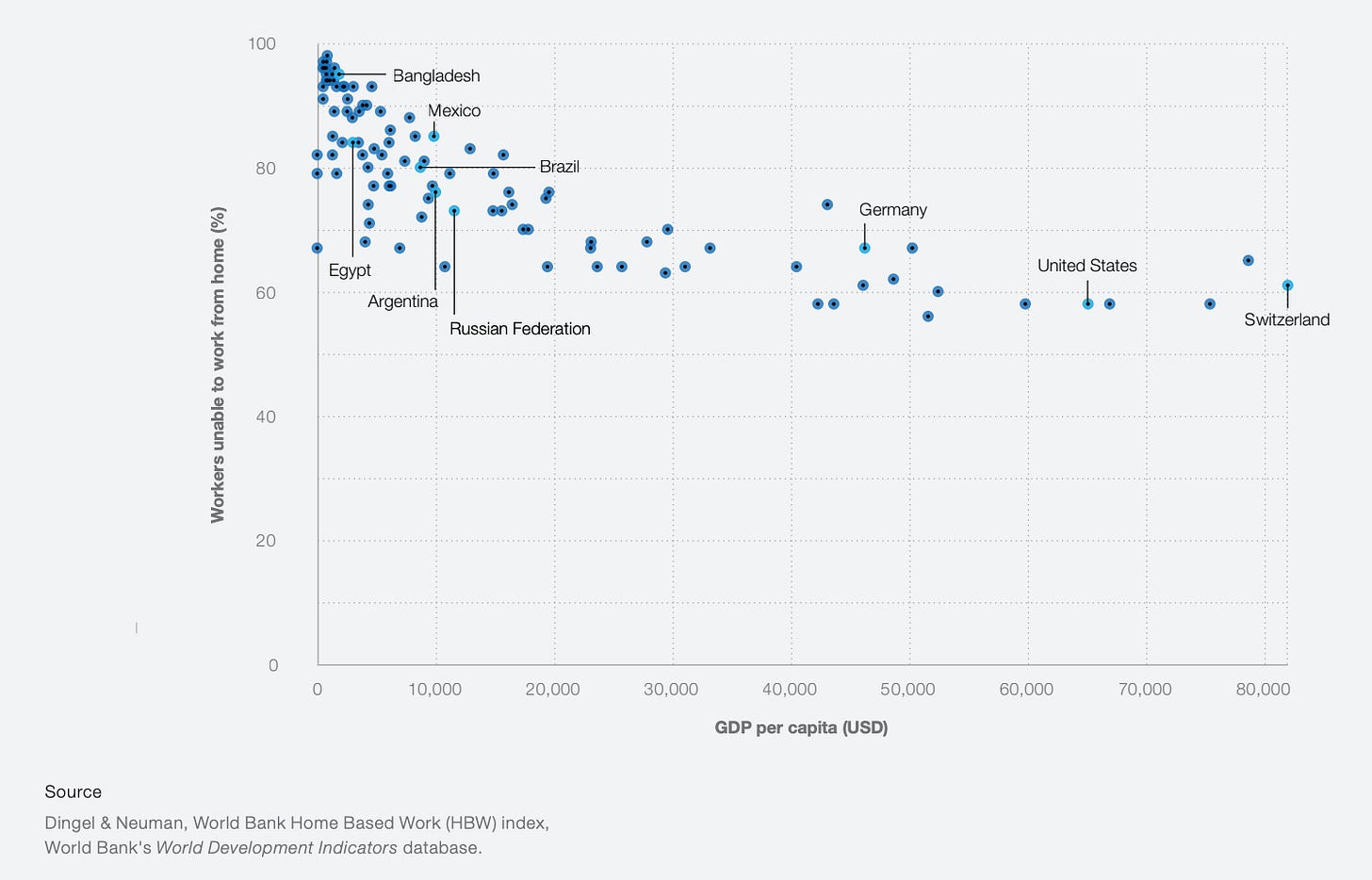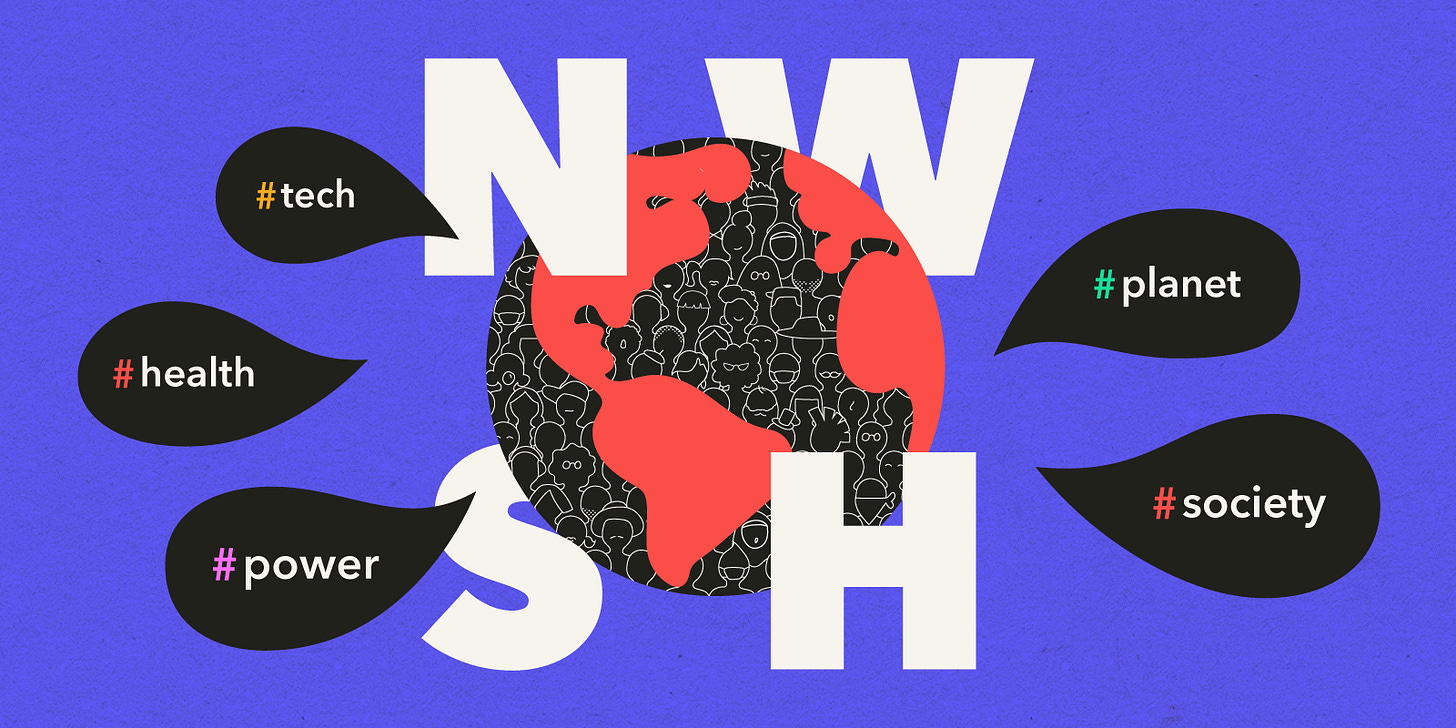New Week Same Humans #9
Everyone thinks fake news only tricks other people. A new tool will fill awkward silences on your next Zoom call. Facebook wants you to share with your neighbours.

Welcome to the Wednesday update from New World Same Humans, a newsletter on trends, technology, and society by David Mattin.
If you’re reading this and you haven’t yet subscribed, then join 13,000+ curious souls on a journey to build a better shared future 🚀🔮
💡 This week’s Sunday essay was about what we owe to future generations. Go here to read Decolonising the Future.💡
An old adage has it that everyone thinks themselves a better than average driver. This week, a new report suggests we face the same problem when it comes to fake news; everyone thinks it’s only everyone else who is fooled by it.
Also, the rise of Zoom Towns, and a new tool to make your next work call less awkward.
Plus, Facebook signals the new age of local networking. And CEOs start changing the way they talk, to please our machine overlords.
Let’s go!
🤷 Fake news only fools other people, says most people
This week The Times newspaper uncovered Russian attempts to bring down a coronavirus vaccine under development at Oxford University.
The cunning plan? Russian memes suggested that the vaccine, which makes use of a chimpanzee virus, will turn people into monkeys. That content was reportedly seeded on social media in countries where Russia wants to sell its own Sputnik V vaccine.
In light of that, a fascinating new report on trust in media this week, from global market research firm Ipsos.
Three highlights:
Globally, 59% of people believe they can spot fake news, but that only 30% of their fellow citizens can.
Two-thirds of people worldwide say they will only read news they can access for free.
A majority worldwide think in their society ‘the system is broken’. Just under half believe the solution is ‘a strong ruler who breaks the rules’.
⚡ NWSH Take: We’re in the middle of a new kind of information warfare, and so far it’s going pretty well for the Bad Guys. Their strategy – create informational chaos, so no one knows what to believe – is highly effective. // The Ipsos report is a reminder of two key challenges. First, complacency: we need to engage people in the idea that fake news is a problem for them, too. Second, the economics of information: we need to recover the belief that reliable news is worth paying for. // My POV: solving those two challenges may prove impossible. In the end, then, we also need to regulate the platforms delivering, and profiting from, disinformation.
👨💻 Annals of remote work
Dropbox became the latest among a host of tech firms to tell employees they can work remotely forever.
New Yorker writer Jeffrey Toobin ‘made an embarrassingly stupid mistake’ on a Zoom call in front of colleagues.
This new tool will play elevator music when your Zoom call goes silent; no more awkward pauses in the wake of that boring update from accounts!
The Journal of the American Planning Association says that remote work is leading to a new phenomenon: Zoom Towns. Their new report says the US is seeing increased migration to small towns close to public lands and ski resorts. Apparently, many of these towns aren’t ready for the onslaught of Macbook-toting knowledge workers.
Meanwhile, the World Economic Forum published its new Future of Jobs report. Buried within, a reminder that for many nothing has changed. Around 60% of workers in high-income countries cannot work from home. That rises to over 80% for economies such as Egypt and Bangladesh.

🏘️ A local site for local people
Facebook is testing miniature social networks that encourage users to connect and share with their neighbours. The Neighbourhoods feature is being trialled among some users in Canada, and if successful may be rolled out worldwide.
Why is Facebook experimenting with local? Look no further than local social network Nextdoor, which is considering an IPO. The company will target a valuation of $5 billion according to insiders.
⚡ NWSH Take: In the 2010s, billions were spellbound by the power of global social networks. Facebook and Nextdoor both know that in the 2020s, local is where it’s at. // The pandemic has been a stark reminder of the power and usefulness of local networks, people and resources; in a crisis, they are what count. Now, consumers are on a renewed mission to access all of those. // Don’t leave this opportunity for Facebook and Nextdoor! How can you empower consumers to tap into local networks, expertise, support, and inspiration? A platform? A campaign? A new service?
🗓️ Also this week
📺 The much-hyped shortform video service Quibi is closing down after just six months. Co-founders Jeffrey Katzenberg and Meg Whitman raised $1.75 billion to launch the startup.
💰 Influencers are buying empty shopping bags to use in their photoshoots. It’s a way to look rich without spending much money.
😲 A company called Possible Reality can take a 2D picture of your face and turn it into a 3D avatar inside a video game or virtual world. I see no problems ahead.
🤖 CEOs are changing the way they talk on quarterly earnings calls, because they know AIs are listening (£). It’s another example of humans changing their behaviour to suit our new machine overlords.
🧠 Dementia Australia created an AI-fuelled avatar that can help train care workers to deal with those with dementia. Worldwide, 82 million will live with dementia by 2030 according to the WHO.
🏠 Google has asked its employees worldwide to return to the country in which they are employed. The firm’s European HQ is in Dublin; it’s estimated 30% of employees left Ireland during the pandemic.
⚖️ Meanwhile, the US Justice Department is bringing a landmark antitrust lawsuit against Google. They say the firm is a monopoly that unlawfully blocks competitors.
🍔 McDonalds has launched vegan SPAM in Hong Kong. The OmniPork Luncheon series includes a burger and various breakfast and snack items.
🚦 Traffic lights in Rotterdam now let cyclists pass through quicker when it is raining. The city has installed rain sensors at key traffic intersections.
🧑🎓 A new programme at Harvard will ask students to bring a philosophical perspective to tech. Hope NWSH is on the reading list 😇
👾 AOC set video game streaming site Twitch alight. The 31-year-old political star took to the site to play hit game Among Us and chat to other gamers.
🌍 Humans of Earth
Key metrics to help you keep track of Project Human.
🙋♀️ Global population: 7,820,090,522 and counting
🌊 Earths currently needed: 1.7701462097
🗓️ 2020 progress bar: 81% complete
📖 On this day: On 21 October 1879 Thomas Edison applies for a patent for his design of an electric lightbulb.
Dial yourself in
Thanks for reading this week.
Want more thinking on these stories and much else besides? There is an answer: last week saw the launch of the NWSH Slack group!
In just seven days we’ve seen a host of fascinating conversations emerge, from an extended dialogue on the nature of AI, to a discussion of the crisis in political representation, to the announcement of an exciting new startup from one of our members.
***Simply follow this link to join the New World Same Humans Slack group***

And if you know others – a friend, family member or colleague – who’d also find our group useful, just forward this email to them with a prompt to sign up to the newsletter. When they do, they’ll receive a welcome email with a link to the Slack. Alternatively, you could share New World Same Humans across one of your social networks, and let people know why you find this newsletter valuable.
I’ll be back on Sunday. Until then, be well,
David.

Thanks David - another great read! :)